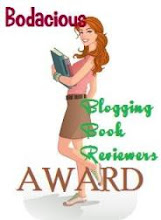Susanna Calkins writes the Lucy Campion mysteries, set in 17th century
England. Her books have been nominated for several awards; her third—The
Masque of a Murderer (Minotaur Books, 2015)—was shortlisted for the Mary
Higgins Clark Award, the Agatha for Best Historical Mystery, and the Bruce
Alexander Historical Mystery Award. Her fourth book—A Death Along the River
Fleet—was released April 12, 2016. Born and raised in Philadelphia, she lives
outside Chicago now with her husband and two sons. With a Ph.D. in British
history, she works at Northwestern University. She also blogs about writing,
history and mystery at www.susannacalkins.com and can be found on Facebook and
Twitter (@scalkins3).
When did you begin writing?
I began writing when I was in second grade, and in
fact started my first novel when I was eight years old (and its one that no one
should ever read!) I worked on that novel off and on for several years, and it
was heavily influenced by whatever I happened to be reading at the time (e.g.
Narnia, Prydain, Alice in Wonderland). I wrote stories all the way through high
school, but in college, the urge to write creatively was sort of beaten out of
me. It was only when I working on my PhD many years later did that creative
urge finally re-appear, although I did not start my first novel until several
years after that period.
Do you write during the day, at night or whenever you can sneak a few
moments?
Because I have a full-time job, two kids, and just
a lot going on, I think I’m a very chaotic writer. I do grab time whenever I
can; I definitely do not wait to have a three-hour block of time to write,
because that rarely seems to materialize. But there are two benefits to my
chaotic approach: (1) I’m completely thrilled if I even manage to write a
single paragraph in a given week, given how busy I am; (2) I do not make myself
guilty if I don’t write or meet some word limit; and (3) I don’t ever have
writer’s block or stare at a blank page. I’m usually thinking about writing
even when I’m not writing, so by the time I have those few minutes, I’m ready
to put a scene down, or even a chapter. I also think that writing fast helps me
write a better-paced mystery, so it works well for me all around.
What is this book about?
A DEATH ALONG THE RIVER FLEET opens with Lucy Campion, 17th
c. printer’s apprentice and bookseller, on her way to deliver some books to a
customer several miles from her shop. As she crosses the River Fleet and enters
the vast wasteland created by the Great Fire of London of 1666, she encounters
a strange woman who speaks of being chased by the Devil. The woman is barefoot,
clad only in a shift, covered in blood that is not her own, and unable to
remember her identity. Worried that the
woman will be set upon by fearful villagers, Lucy brings the woman to the home
of a physician she knows. When they suspect that the woman may be a noblewoman,
the physician does not wish to throw her out of her house and presses Lucy to
tend the woman while the woman’s family is being located. To make matters more
strange, the body of a murdered man is found in the ruins nearby, and the odd
woman may well be the murderess.
What inspired you to write it?
My novels always start with an opening
image—usually something very simple that triggers a number of questions for me.
So for A DEATH ALONG THE RIVER FLEET, I had the image of a senseless young
woman, running as if the Devil were chasing her. I was interested too in the
medical questions of the day—on closer inspection, not only did this woman have
odd wounds on her hands and an amulet of rosemary around her neck, but it was
clear that someone had been doing bloodletting on her neck. As the questions arose,
it became fun for me to answer them.
Where can readers purchase a copy of your book?
My books are available through bookstores across
North America as well as online, through sites such as BarnesandNoble.com and
Amazon.com.
What is one piece of advice you would like to share with aspiring
authors everywhere?
Ironically, my advice is to ignore most advice by
other authors—even those who appear to be very successful. Blanket statements
like “Set a word quota every day and stick to it” or “Write at the same time
every day,” or “Don’t watch TV while you write your novels” can set authors up
for a sense of failure if they don’t follow the rule. [Okay, no one ever says
the last one, which is good, because I sometimes write or edit while my husband
is watching TV]. The thing is, authors need to figure out for themselves how to
persevere and turn a collection of ideas and words into a novel. Sometimes the
inability to move forward is about ‘butt in chair,’ but sometimes, its about
the decision to set a manuscript aside. So I guess my advice is, Know Thyself.
What is up next for you?
I am working on some other novels—a Young Adult set
in 19th century Paris which I hope to shop around soon, another
mystery set in 1930 Chicago, and a contemporary.


























No comments:
Post a Comment